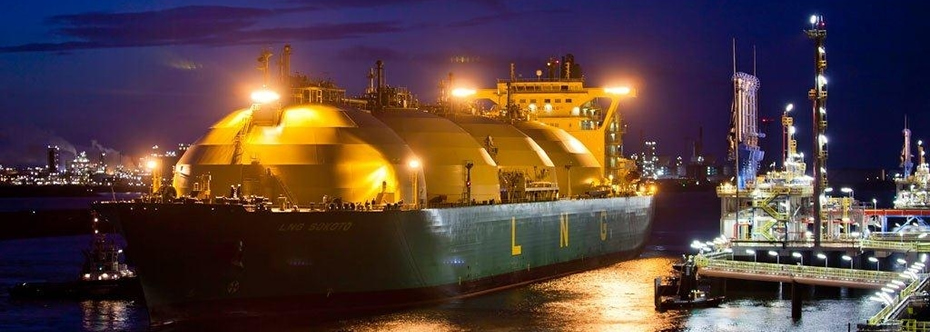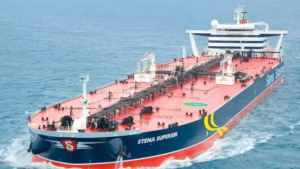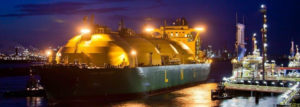Uncategorized
Total to sell more assets, cuts oil output target

LAGOS-French oil company Total is to sell more assets and cut costs to generate more cash and is to revamp exploration plans after reducing its oil production target.
Total, which has struggled with production outages in Libya, Kazakhstan and Nigeria, on Monday cut its 2017 output goal to 2.8 million barrels of oil equivalent per day from a previous 3 million.
France’s biggest company by market value and the West’s fourth biggest oil and gas group launched a “high-risk, high-reward” drilling strategy two years ago. But this has had disappointing results as high-cost investments did not lead to large discoveries.
“We have more than 15 major projects to fuel the future growth … Two thirds of those projects are operated by us so that gives us confidence we will achieve the targets,” chief financial officer Patrick de La Chevardiere said at Total’s investor day in London on Monday.
Total, like other big oil companies, has been under pressure from shareholders to cut costs and raise dividends as rising costs in the oil industry and weaker oil prices squeeze profitability.
It has been selling off businesses, such as its adhesives division Bostik, which French chemicals group Arkema has offered to buy for 1.74 billion euros (2.24 billion US dollar).
The company now plans to sell $10 billion worth of assets in 2015-17, having achieved a target of $15-20 billion of sales in 2012-2014.
Since 2010, Total has generated a total of $30 billion from assets sales, according to De La Chevardiere. That makes it one of the most ambitious sell-off programmes in the industry alongside BP’s $50 billion sell-off plan.
De La Chevardiere declined to comment on what assets the company could sell, adding that under the previous asset sale plan it had sold both upstream and downstream businesses.
The company’s investments would fall to $25 billion in 2017 from a peak of $28 billion in 2013 while operating expenses would fall by $2 billion per year by 2017.
Total CEO Christophe De Margerie last year said the company aimed for a “soft-landing” in capital investments.
On Monday, the group stuck by an earlier target to generate cash of $15 billion in 2017 but cut the target for next year to $7 billion from a previous $10 billion. It had free cash flows of $2.6 billion in 2013.
Total’s share price was up 0.5 percent at 1115 GMT, after rising as much as 1.4 percent earlier. The stock was outperforming its peers BP, ENI and Royal Dutch Shell on Monday and also since the beginning of the year with gains of 13 percent.
DISCOVERY DISAPPOINTMENT
The company also said it had hired Kevin McLachlan as senior vice president for exploration. He was formerly with U.S. energy company Murphy Oil, where he held the same position.
Asked about Total’s exploration track record, de La Chevardiere said: “When you follow the fact that we hire somebody from outside, you have the answer. The new head of exploration is coming from another company. The issue we had was to make discoveries.”
Total is part of a consortium developing the giant Kashagan oil project in Kazakhstan, which has been held up by gas leaks in the field’s pipeline network. The country has said it expects the field, one of the world’s biggest oil finds of recent times, to come onstream in 2016.
“We are discussing repairing the pipelines. It will be done by 2016 … It is a last chance for us,” de La Chevardiere said.
Total also did not forecast any output contributions in 2015 from its Angola liquefied natural gas project, where a string of missteps has led to multiple delays. The Chevron-led venture expects the shutdown to last until mid 2015.
In Russia, Total believes its Yamal liquefied natural gas joint venture in the Arctic can go ahead on time despite international sanctions against Russia over its role in the Ukraine crisis.
“The Yamal production is not included in our 2017 production goals. Even though we could start before that,” De La Chevardiere said.
He also said he expected Europe’s refining capacity to continue to shrink because of falling demand and poor refining margins. “We will adapt our production to the market,” he said adding that the firm could cut capacity or sell refineries.
CEO De Margerie told a conference call with investors on Monday that he was optimistic despite production target cuts.
“Total is still well positioned as one of the fastest growing global major companies between now and 2017,” he said.
BUSINESSDAY-
Oil
Houston now exports more crude than it imports- EIA

Yemie ADEOYE with Agency report
HOUSTON TX -Earlier this week, the U.S. Energy Information Administration (EIA) declared that the port district of Houston-Galveston has for the first time ever begun exporting more crude oil than it ever imported. The district includes the Port of Houston as well as other Texas Gulf Coast ports from Galveston to Corpus Christi.
One company helping the port district to build its net-exporter profile is SemGroup Corp., whose HFOTCO subsidiary this week received the first ship at its recently completed deep-water dock along the Houston Ship Channel. In a written statement sent to Rigzone late Thursday, SemGroup noted that its new “Ship Dock 5” – completed this summer along with the addition of 1.45 million barrels of new crude storage – can handle up to Suezmax-size vessels with 45-foot drafts.
“Our unique position on the Houston Ship Channel provides us vast connectivity from virtually all U.S. production basins to the Gulf Coast refining corridor and the growing export market,” according to Shaun Revere, CEO of HFOTCO. “The completion of Ship Dock 5 demonstrates our long-term commitment to expand with the Port of Houston and the Houston Ship Channel. Our parent company, SemGroup, purchased HFOTCO in 2017 as part of its strategy to diversify its business and capture the tremendous opportunities this waterfront property has to offer. We are glad to be part of a company that shares our vision for this area and will continue to invest in infrastructure to better serve our customers.”
According to SemGroup, HFOTCO constructed the dock from December 2016 to June of this year. The parent company stated that the project entailed installing pipelines linking the HFOTCO storage area to the new dock to facilitate product loading and offloading. In addition, SemGroup noted that HFOTCO’s crude oil capacity and connectivity has more than doubled in the last five years in addition to adding crude oil export capabilities.
HFOTCO owns and operates four other ship docks – each of which also can handle up to Suezmax-size vessels with 45-foot drafts. Moreover, the SemGroup subsidiary owns and operates seven barge docks and approximately 18.25 million barrels of storage capacity on its 330-acre waterfront site on Port Houston property. Recent expansions have also given HFOTCO the ability to handle refined products such as naphtha, jet fuel and other distillate products, SemGroup stated.
“The completion of this dock on the Houston Ship Channel by HFOTCO is a positive development,” Roger Guenther, executive director of the Port of Houston Authority, said in the SemGroup announcement. “This partnership between the Port Authority and the company allows us to optimize our real estate assets and meet our strategic growth plan objective to grow and diversify our business base. It also allows HFOTCO to meet its objectives.”
In its August 20 announcement, EIA stated that crude oil exports from Houston-Galveston exceeded imports by 15,000 barrels per day (bpd) in April 2018. The following month, the difference from Houston-Galveston jumped to 470,000 bpd – nearly one-quarter of the total 2 million barrels per day in U.S. crude exports during the period.
Gas
Nigeria risks investment setbacks as Fed.House of Reps passes controversial NLNG amendement Bill

Yemie ADEOYE
HOUSTON TEXAS, USA-NIGERIA may be preparing for a huge setback in foreign direct investments as the federal House of representatives have finally passed the controversial bill that seeks to amend the NLNG fiscal incentives, Guarantees and assurances Act for the sole aim of ensuring a 3 percent budgetary tax to the Niger Delta Development Commission, NDDC barely a week after the Minister of state for petroleum resources, Dr. Ibe Kachikwu declared the federal government’s support for Nigeria LNG Limited.
The minister who declared his support for the NLNG while addressing a world press conference on the sidelines of the recently concluded Offshore Technology Conference in Houston Texas noted that an agreement is binding especially when it involves international investors. according to him there is certainly no basis for controversy as this is the exact reason why the agreement was supported by an act of parliament in order to further boost investor confidence.
However, the Federal House of Representatives passed a bill for the amendment of the NLNG (Fiscal Incentives, Guarantees and Assurances) Act irrespective. and the NLNG in a statement opined it does not believe that this is in the national interest, as its direct consequence would be to project Nigeria as a sovereign-state promise breaker and an unsuitable destination for investments.
A statement released by the General Manager, External Relations of the company, Kudo Eresia Eke, said the amendment violates the Assurances and Guarantees granted the investors by the country, and reinforced by successive governments, which paved the way for the huge international investment that enabled the company to become a reality and the success story it is today.
The main thrust of the Guarantees and Assurances were to assure the foreign investors that their investments would be protected by the non-amendment of the NLNG Act. This is the reason why the NLNG Act has remained intact and protected by all administrations from inception, in recognition of the sanctity thereof.
Reacting to the news of the said passage of the amendment by the House of Representatives, the Managing Director of Nigeria LNG, Tony Attah, said the proposed amendment can ONLY be a DIRECT ATTACK on the present Government’s EASE OF DOING BUSINESS AGENDA and in the current administration’s determination to attract direct foreign investment to Nigeria. It needs to be clearly stated that INVESTMENTS are unlikely to flow into an environment where contracts and agreements are flagrantly violated as is imminent in this instance.
By way of background, the Niger Delta Development Commission (NDDC) Act has its origin in the need to address the adverse effects of upstream oil and gas exploration and production activity –specifically oil spills and gas flaring—as well as the development needs of the Niger Delta region
For the avoidance of any doubt, NLNG does not prospect for or extract gas from the ground. The Company buys feed stock from its gas suppliers, which it proceeds to clean and cool for sale. As such, the company is like any manufacturing, petrochemical or refining firm that uses gas as feedstock, and there are quite a number of them in the Niger Delta. We are unaware that any other company is being targeted as NLNG apparently is. NLNG helps to convert and monetise gas for the benefit of the environment, shareholders and other stakeholders including the Government and Nigeria.
Nevertheless, NLNG has since inception continued to pay applicable taxes, levies and charges to local, state and federal tiers of Government amounting to well over $5.5 billion. This is besides about $15 billion already paid in dividends to the Federal Government through the NNPC. In addition, we operate a robust corporate social responsibility programme, considered to a model by the rest of the oil and gas industry. The programme has cost about 200 million US dollars to date and extends to areas including business and human capacity development and infrastructure development in our primary areas of operation and across Nigeria. It is instructive that NLNG was operating a Nigeria scholarship scheme even before it exported its first cargo in 1999/2000. More recently, the company has spent 12 million US dollars to donate engineering laboratories and equipment to 6 universities across Nigeria’s geo-political zones, to support science and technology teaching and research. In addition, NLNG currently supplies 40% of the nation’s cooking gas (LPG) while also providing scholarships to Internally Displaced Persons (IDPs) in the North-East of the country.
This curious amendment initiative represents the first time in the history of legislative practice in Nigeria, when a law is amended for the sole purpose of imposing a levy against a private company for the benefit of an agency of government. The current National Assembly is strongly urged not to inadvertently lend itself to the establishment of such an unjust and potentially damaging precedent. More so when the said agency in this instance had lost its claim in the courts, including the Supreme Court of the land. As a private company with the vision to help build a better Nigeria, we are aware that courtesy of the referenced assurances and guarantees as well as the regulations and provisions of the law, shareholders and NLNG have the right to pursue the protection of our business interests as provided for under the same regulations and the law.
NLNG wishes to state that should the need arise it shall seek that protection under the law.
Uncategorized
Exit of cash calls agreement to usher in Investment in Oil sector-NNPC

By Yemie ADEOYE
ABUJA-THE Upstream petroleum sector in Nigeria which has recorded low investment in recent years would soon be upbeat in a flurry of activities.
This is the prevalent views of captains of the Oil and Gas Industry led by the Hon. Minister of Petroleum, Dr. Ibe Kachikwu, the Group Managing Director of NNPC, Dr. Maikanti Baru and chief executives of International Oil Companies (IOCs) at a signing ceremony of cash-call exit agreement between NNPC and its Joint Venture partners in Abuja today.
Speaking at the event, Dr. Ibe Kachikwu stated that the consensus in the industry is that with the signing of agreements to exit cash calls, investments would soon flow into the Nigerian Oil and Gas Industry.
The Minister said if the industry focused on key issues that impede the industry and resolve them, Nigerian Oil and Gas Industry would soon be able to compete favourably with its peers across the world.
“This event is significant because it has taken us to a point where we can compete with our colleagues all over world. We have dealt with the downstream, and this is probably the most important item in the upstream and that is obvious we will begin to go into the policy measures and infrastructural development and the rest after the signing ceremony” Dr. Kachikwu said.
In his remark at the event, NNPC GMD, Dr. Maikanti Baru recounted that a lot of work went to the signing ceremony of the cash call exit agreement noting that the Buhari Administration should be commended for mustering the desired political will to resolve the challenge.
He explained that the signing of the exit cash call agreements comprises three components which are: the process of settling the pre-2016 cash call areas; the process of sustaining the cash call payment from 2017; and agreement and settlement over performance in 2016.
Dr. Baru also commended the contribution of the Hon. Minister of State for Petroleum Dr. Ibe Kachikwu for his contribution to exit cash calls in the industry.
Dr. Baru stated that the Dr. Kachikwu offered necessary supports to put the framework of the agreement in place as well as energize the process when naughty issues capable of derailing negotiations aroused.
Also speaking during the signing ceremony, Chairman of Oil Producers Trade Section of the Lagos Chamber of Commerce and Industry, who is also the Chairman and Managing Director of Chevron Nigeria Limited, Mr. Clay Neff, said that the signing ceremony represents a milestone in the Oil and Gas Industry in Nigeria.
Neff expressed optimism that the agreement would stabilize and also increase upstream production over time, stressing that the repayment of the arrears in a sustainable manner is a key enabler to additional investment in the upstream sector in Nigeria.
Under the new arrangement which came into effect following the signing of the agreement between the NNPC and the IOCs Joint Venture Partners, the entire NNPC equity Oil and gas revenues are now to be paid directly into the Federation Account.
Hitherto, competition from other appropriated items of expenditure in the federal government’s budget has always limited the deduction of technical cost required to fund the cash calls on monthly basis.
It is expected that execution of this agreement would end the long standing cash call challenges that have impacted the Nigerian oil and gas industry over the years.
With this arrangement, the federal government will continue to receive royalties, taxies and profit from its equity share of JV oil and gas production while the cost of operation is deducted upfront.
The agreement provides that the outstanding cash call arrears will be repaid within a period of five years through incremental production revenues without impacting the established based production revenue.














